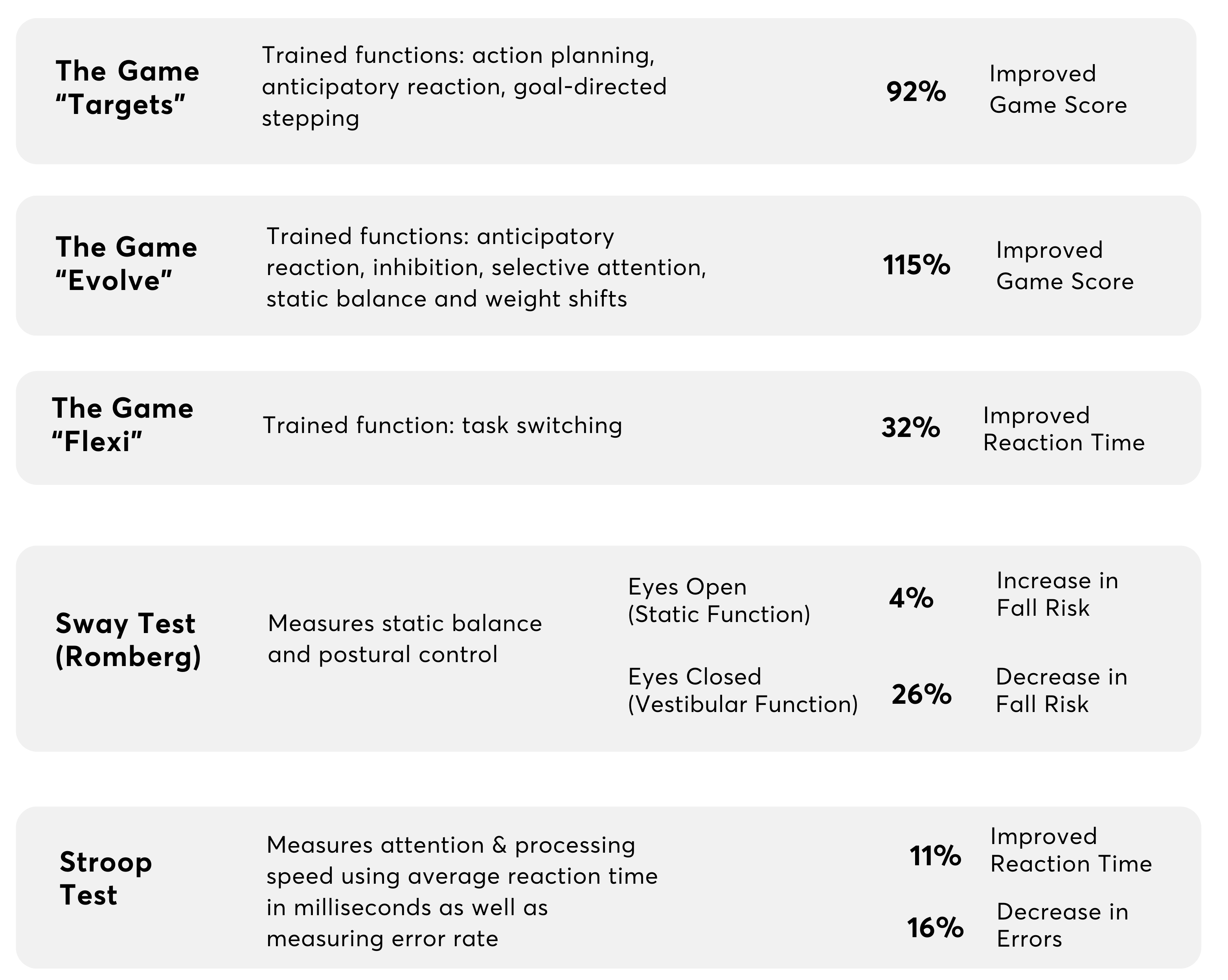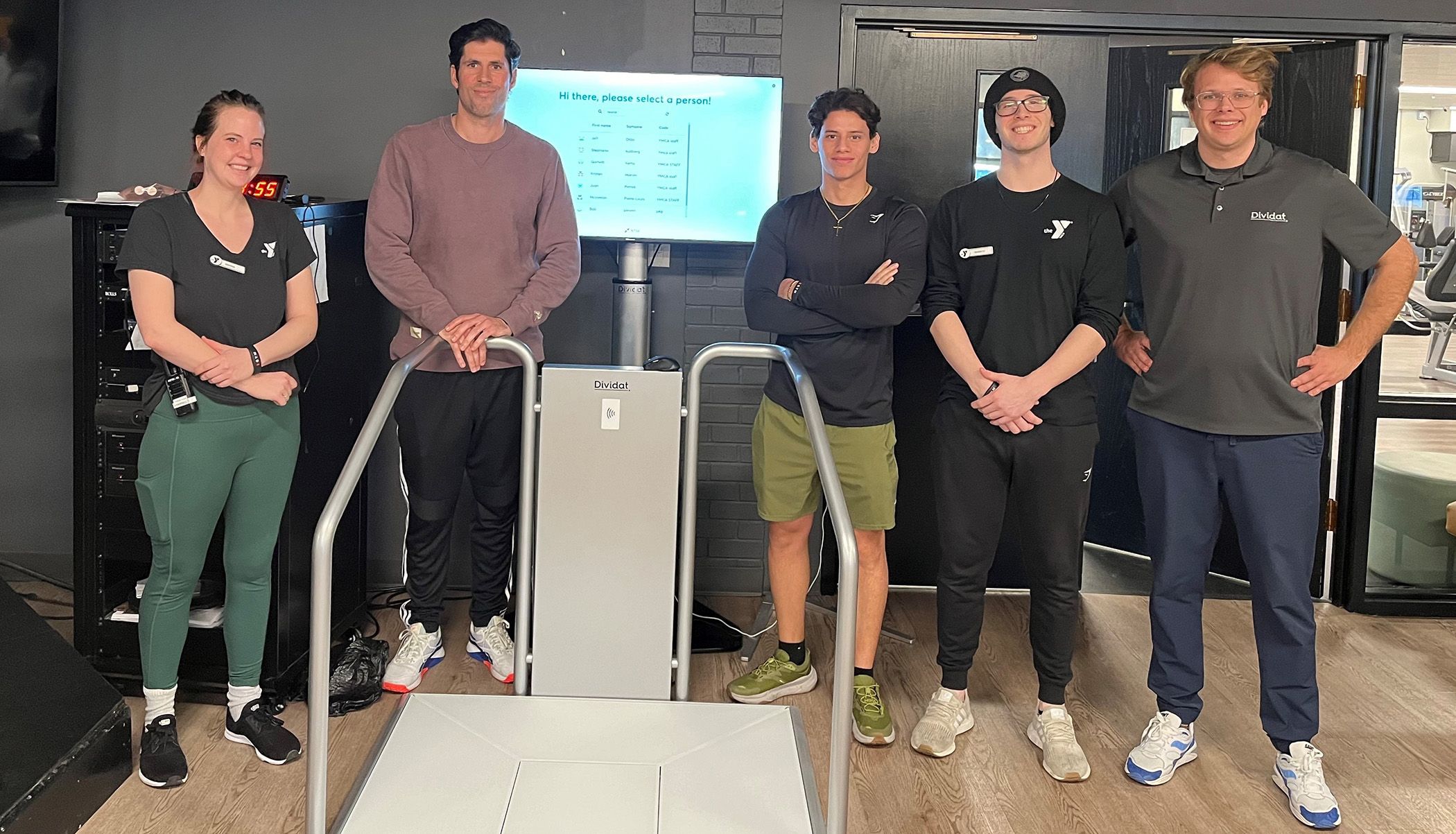news
Dividat partners with YMCA of Metro Denver to assess value-added programming for members with Parkinson’s Disease and Balance Challenges
Dividat USA recently partnered with the YMCA of Metro Denver to launch a pilot study centered around three different programs: Pedaling for Parkinson’s, Parkinson’s in Motion and Balance and Falls Prevention.
You can download the full case study here:
Denver YMCA Case Study
Background
The prevalence of Parkinson's disease (PD) in Colorado is alarming, with an estimated 17,000 individuals living with the condition and a mortality rate of 11%, one of the highest in the country. The inadequate current state of care leads to increased need for full-time care, adverse outcomes such as cognitive impairment and falls, and a higher risk of long-term care placement. To address these issues, it is essential to promote non-clinical therapeutic programs that can mitigate or manage these problems, as well as provide support for the psycho-social consequences of PD, including depression and anxiety.
Case Study Overview and Objectives
The case study was not meant to assess the scientific credentials of Dividat Senso, rather the focus was to examine the suitability of Senso in a non-clinical, fitness community environment setting such as the YMCA. We studied whether the Senso technology can offer members living with PD and severe balance concerns an enhanced non-clinical, therapeutic program that can evidentially contribute to the mitigation or management of adverse physical and psycho-social outcomes, in combination with the ensemble of therapies they undergo.
Determine if the DIVIDAT program and technology meet the needs of YMCA members for Parkinsons’ and Balance Therapy. Among the variety of PD programs and service providers in the Metro Denver area, what is the unique value-added of a YMCA <>Dividat program?
Determine if DIVIDAT has strong marketability for the YMCA beyond a specific audience for Parkinsons’ and Balance Therapy. How can Dividat be used by other YMCA members, and for what benefits? In determining if the YMCA adopts Dividat what would be the ‘GO<>NO-GO’ factors?
Case Study Details
Participants: 27 Enrolled | 19 Completed
Age range: 55-85 Years old
Diagnosis: 17 Parkinsons | 7 Balance challenges | 3 Control
Gender: 16 Male | Female 11 Female
Training Expectation: 10 minutes 2 times/week for 8 weeks
Evaluation Points: Pre & post assessments

Data Output
Pre and post Dividat Senso digital assessment values
The game “Targets” (dynamic balance results)
The game “Evolve” (static balance results)
The game “Flexi” (cognitive results)
The Sway test (physical function)
The Stroop test (cognitive function)
The completed participants increased their expected participation by 14%. Each completed participant averaged just under 3 hours of the training effect.
Results
(% reflects the overall completed participants group average)

Case Study Summary
The completed participation rate exceeded expectations by 14%, which suggests acceptance and enthusiasm among YMCA members for the cognitive motor technology as a complement to existing fitness programs. This is further reinforced by an overall compliance rate of 70.4%.
The ease of use and adoption of the Senso device appears to facilitate the learning of skills to improve reaction time, cognition, balance, and overall movement, with participants being able to use it independently without assistance.
By gaining a deeper understanding of physical-cognitive interplay, the YMCA trainers expressed it was a rewarding stimulus to their role and career development as a personal trainer.
Some logistical constraints had a modest impact on operations. These include the somewhat isolated location of the device and occasional internet connection issues. These issues are easily mitigated.
The training effect from the small dose and frequent training sessions was notable, suggesting that the technology's specificity was well-suited for this population. The results showed significant improvements in reaction time and motor control, indicating that the training was effective in enhancing the participants' cognitive and motor skills.
The results demonstrated a modest improvement in balance function, more so in the eyes-closed phase of the SWAY assessment, indicating enhanced vestibular function and suggesting a positive impact on the participants' ability to maintain balance and equilibrium.
The results confirmed that the training was effective in improving cognitive function, verifying that the Think & Move strategy can indeed achieve specific neuroplasticity improvements with a minimal dose and frequency of training, offering a promising approach for enhancing cognitive abilities.
Observations: Perceptions on Usefulness and Future Use
On a scale of 1 to 3, do you feel that the Dividat Senso program added significant value to your overall health and wellness regime?

If the YMCA included the Senso platform and its pograms as a fee-based option (similar to EGYM), would you use it? Yes, No, Maybe. Why? Why not?

Personal Stories and Insights
Ted (age 64) has been diligent about the Senso sessions as part of his overall regime to manage the PD. He feels that the YMCA environment is highly suited to more targeted PD programs both in scope and scale.
For Bob (age 58) one key feature of Dividat is the community element – the Y is not a clinic, it doesn’t have the institutional feel. As his days become more filled with medical and neurological care [hope] to come to the Y for the community atmosphere even while doing therapy. The YMCA is an environment that nurtures physical, social, and emotional arena.
Jane (age 73) has been a member of the YMCA for 40 years and is doing Dividat because she likes being in a study to further research and secondly, it’s fun.
Connect with us to learn more about Dividat Senso Think & Move programs and partnerships. Also, to learn more about our Parkinson’s research be sure to check out our Parkinson’s research study.
